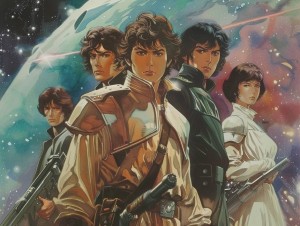Wedbush Securities professional analyst Michael Pachter is getting the industry talking with his somewhat controversial labeling of the traditional exclusivity model of PS and Nintendo as “wrong” and “broken.” In the latest episode of Pachter Factor, the veteran analyst advises that MS’s approach to bringing certain games into other platforms whilst maintaining exclusivity for a few is a more reasonable one.
Pachter’s statements are illustrative of the fact that many experts and stakeholders in the industry are of the view that the same model of exclusivity that Sony and Nintendo have been using is not useful in today’s game environment. He mentions that this concept was efficient and successful in the past especially around the middle of the 2000s, now though, this is antiquated and it fails to tap potential revenue streams.
Microsoft’s alternative approach
On the other hand, Parcher praises Microsoft as the latter has explicitly mentioned that certain titles will be available on a multi-platform basis to improve accessibility. The announcement of AAA titles like Sea of Thieves and Hi-Fi Rush for the PS5 shows Microsoft’s boldness in extending the horizon of its, original, exclusive ecosystem. This approach differs from the previous view that the main priority is distinctions between titles concentrated on specific platforms.
Microsoft’s aggressive challenge against the current status made considerable debate among the games community, even Xbox loyal fans controversy. While some people think that the company’s initiative to embrace all of the users and help them interact with the games is a great idea; others fear that this could reduce the uniqueness of the Xbox exclusive games.
The core of Pachter’s critique is the financial logic behind exclusivity. Certainly, such titles about which the companies profit gratify them, Pachter assumes that they miss a lot of opportunities to bring more revenue by publishing it on just one platform. He draws up similarities to the film industry, for instance describing the exclusive model as a studio owning a chain of theaters and holding all rights to exhibit the films to that theater only.
Pachter’s comments are illustrative of the changing trends in the general gaming consumers and their behaviors. With the introduction of new gaming platforms of different varieties, gamers have become more and more accustomed to having a gaming experience that is full of personalization and convenience. The rise of multi-platform play, together with subscription services, indicates the need for a unified experience of the devices and ecosystems.
Implications for Sony as well as Nintendo
Pachter’s remarks matter because of his reputation as a highly skilled expert with gaming distribution issues. Whilst Sony and Nintendo have been quite successful with their exclusive titles according to Pachter’s criticism they may still need to revisit their strategies to respond to the changing market trends. Failure to be responsive may result in such a situation where competitors are ahead as they develop more inclusive practices and thinking.
Despite looking a lot more complex in actuality, exclusivity and accessibility remain the main topics for discussion for gaming companies today. Although exclusives compel gamers to buy hardware and increase brand name, they, however, corner the audience and have limited revenue streams to generate. To be able to strike the right balance between exclusivity and accessibility will probably be a huge problem that will have to be solved by software developers as they pursue to stay afloat and advance in an ever-changing gaming market.
Michael Pachter’s opposition to the Sony and Nintendo exclusive model was groundbreaking since it defied numerous gamers’ age-old beliefs about the importance of platform exclusivity in the gaming market. As the strategy of Microsoft over the next generation gets more inclusive towards the distribution of games, questions arise about whether traditional exclusivity is still the best approach. In the video gaming field going with the changes, companies are faced with a choice of whether they should take advantage of the exclusivity options or provide gamers with a choice and reasonable accessibility.





